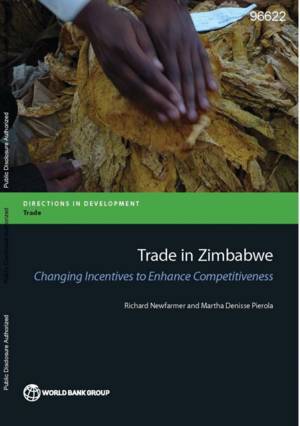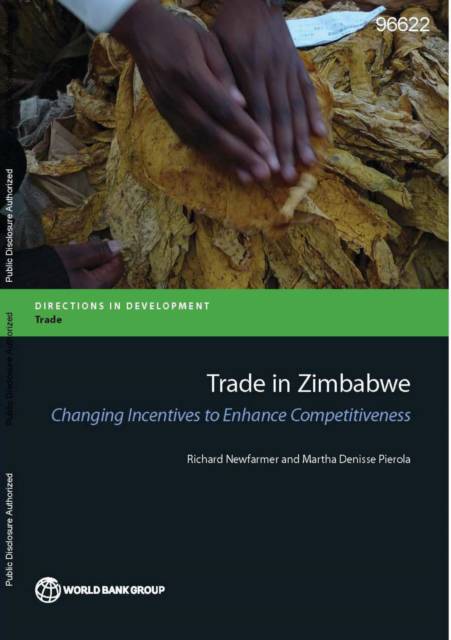
Je cadeautjes zeker op tijd in huis hebben voor de feestdagen? Kom langs in onze winkels en vind het perfecte geschenk!
- Afhalen na 1 uur in een winkel met voorraad
- Gratis thuislevering in België vanaf € 30
- Ruim aanbod met 7 miljoen producten
Je cadeautjes zeker op tijd in huis hebben voor de feestdagen? Kom langs in onze winkels en vind het perfecte geschenk!
- Afhalen na 1 uur in een winkel met voorraad
- Gratis thuislevering in België vanaf € 30
- Ruim aanbod met 7 miljoen producten
Zoeken
Trade in Zimbabwe
Changing Incentives to Enhance Competitiveness
Richard Newfarmer, Martha Denisse Pierola
€ 50,95
+ 101 punten
Omschrijving
In Zimbabwe, trade has been a driver of economic growth, rising incomes, and progressive empowerment of Zimbabweans through rising standards of living and the promise of better jobs. Since 1980, through good years and bad years, increases in exports have been positively associated with increases in national income. Zimbabwe's location and resource base, together with a low-cost but relatively well educated labor force, have endowed it with a naturally high trade ratio built on a diversified base that facilitates using trade as an engine of growth. While trade volumes have rebounded smartly from the deep recession of 2007-2008, these do not offset other worrisome longer-term trends: - Export growth during the last decade has been lacklustre and failed to drive high growth. - Agricultural exports, other than tobacco, have lost their once dominant role in the region, and are no longer a source of diversification. - Manufacturing has withered in a continuing secular decline. - Zimbabwe's export basket has become less diversified and more dependent on a narrow range of mineral and, to a lesser extent, agricultural products. In short, exports have become less diversified, less-technologically sophisticated, and less labor-intensive - and ever more dependent on a few large mining activities to provide foreign exchange and employment. This report traces the roots of this poor performance to several policy issues: poor predictability of macroeconomic policy and economic governance has created an unfavorable climate for private investment and trade; a tariff structure that dampens export profitability; industrial policies - indigenization policy in particular - that undermine investor confidence and inhibits private investment; and finally, competition-limiting policies toward services that limit connectivity of Zimbabweans and raise trade costs. The good news arising from the study is that the remedies for these policy shortcomings lie in Zimbabwean hands. If the government were to adopt reforms that reconfigure economy-wide incentives and trade and industrial policies, it could promote sustained growth, economic diversification and empowerment of poor people.
Specificaties
Betrokkenen
- Auteur(s):
- Uitgeverij:
Inhoud
- Aantal bladzijden:
- 166
- Taal:
- Engels
- Reeks:
Eigenschappen
- Productcode (EAN):
- 9781464804465
- Verschijningsdatum:
- 26/05/2015
- Uitvoering:
- Paperback
- Formaat:
- Trade paperback (VS)
- Afmetingen:
- 178 mm x 249 mm
- Gewicht:
- 340 g

Alleen bij Standaard Boekhandel
+ 101 punten op je klantenkaart van Standaard Boekhandel
Beoordelingen
We publiceren alleen reviews die voldoen aan de voorwaarden voor reviews. Bekijk onze voorwaarden voor reviews.









